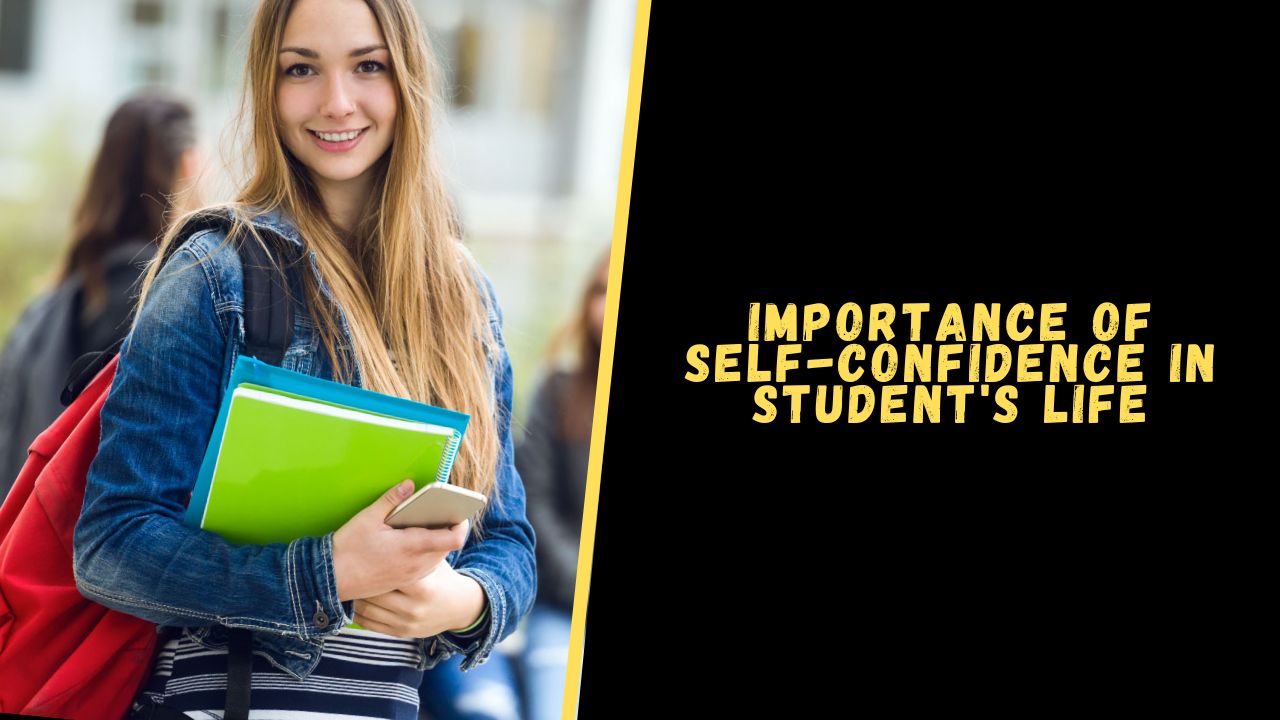The best gift we can give the students is self-confidence. The pupils who struggle with learning, motor skills, and physical limitations lack self-confidence in the classroom. However, those that have a great deal of self-confidence can succeed in life. That’s why we discuss the importance of self-confidence in a student’s life.
Everyone’s life depends on self-confidence. It is essential for success. And when it concerns kids, it’s one of the things that contribute to their academic performance. As a result, parents should make an effort to raise their children’s self-esteem. And for their child’s bright future, they should also make sure that there is a conducive learning atmosphere.
What is a Self-Confidence that is Healthy?
A sense of trust in one’s skills, talents, and judgment is known as self-confidence. Taking joy in your accomplishments while acknowledging your imperfections is the key to developing a balanced sense of self-confidence.
Children who have a strong sense of self-worth might feel really good about themselves and recognize that they are deserving of respect. It is crucial to have self-confidence because, according to numerous studies, it is closely related to happiness.
Be courteous to all, but intimate with few, and let those few be well tried before you give them your confidence.” - George Washington
What happens when kids are confident in themselves?
Children who are confident are much more likely to carry out tasks successfully than those who lack or have little confidence.
- They exhibit outstanding academic performance and receive good ratings.
- The kids are eager to experience new things and are proud of what they have accomplished.
- The ability to learn from mistakes is imparted to the kids.
- They place more emphasis on professional and personal objectives.
- They take pleasure in education and create new ambitions every day.
- Most significantly, people value their independence and judgment.
The Importance Of Self-Confidence In Education And In Life
Most people intuitively recognize the connection between self-confidence and performance. The correlation between confidence and performance, however, is more than just anecdotal.
1. STUDENTS WHO ARE MORE SELF-CONFIDENT DO BETTER UNDER PRESSURE
Students that are self-confident can perform under pressure. Additionally, it goes beyond simply learning how to take tests better. Assignments, projects, and papers all have due dates, and performance pressure increases with approaching deadlines.
Students may be knowledgeable about the subject matter, but if they lack self-confidence in their abilities, they might not give their best effort during those crucial times that can make or break their academic careers.
2. LESS ANGER AND FEAR
It can be quite detrimental to your child’s academic and social development for them to have the propensity to dwell on fears and perceived errors. She can avoid succumbing to anxiousness, end the cycle of overthinking, and accept her full potential with more self-confidence.
3. BETTER MOTIVATION
A youngster who lacks self-confidence may believe that her desires and goals are unattainable or that she is incapable of fulfilling them. She will find it challenging to keep up her high level of commitment and motivation due to these feelings.
4. MORE SUSCEPTIBILITY
Students that are self-confident may overcome obstacles with ease. Children that are resilient bounce back easily from failure, take the lessons they’ve learned, and try again.
5. GROWTH IN RELATIONSHIPS
Children who experience bullying or rejection from social circles or friendship groups at school may benefit from developing their self-confidence.
Because they won’t be preoccupied with how others perceive them, they will take greater pleasure in social interactions.
6. A MORE SOLID SENSE OF THEIR TRUE SELVES
Your child may find power from a deep sense of honesty. Your child can keep a strong sense of self-esteem despite setbacks or perceived deficiencies if she is confident in the person she is, what she stands for, and her strengths. She may, in other words, appreciate her maximum potential and show off her best qualities.
How To Improve Self-Confidence?
Engaging children in a variety of self-esteem exercises for pupils is one of the finest ways to increase confidence. Children who could come from unfavorable family environments might develop skills that provide a sense of belonging and respect by increasing their self-esteem.
A student’s self-esteem can be raised, creating a positive learning environment where knowledge and education can flourish. Student self-esteem activities are a great approach to promote learning and boost a child’s confidence.
Conclusion
Self-confidence is a general term that covers a wide range of concepts. The personality that emanates confidence is shaped by emotional restraint, sensitivity, and resilience. A self-assured individual would understand how to make comments that are sincere without offending other people’s feelings.
A self-assured individual would understand how and where to say things that are sincere without offending other people. When there is disagreement, a self-assured individual knows ways to be understood with the utmost respect. Practice is true for all these needs, but your personal self-belief that you can perform better is what matters most.
You can also check out Articles about-
